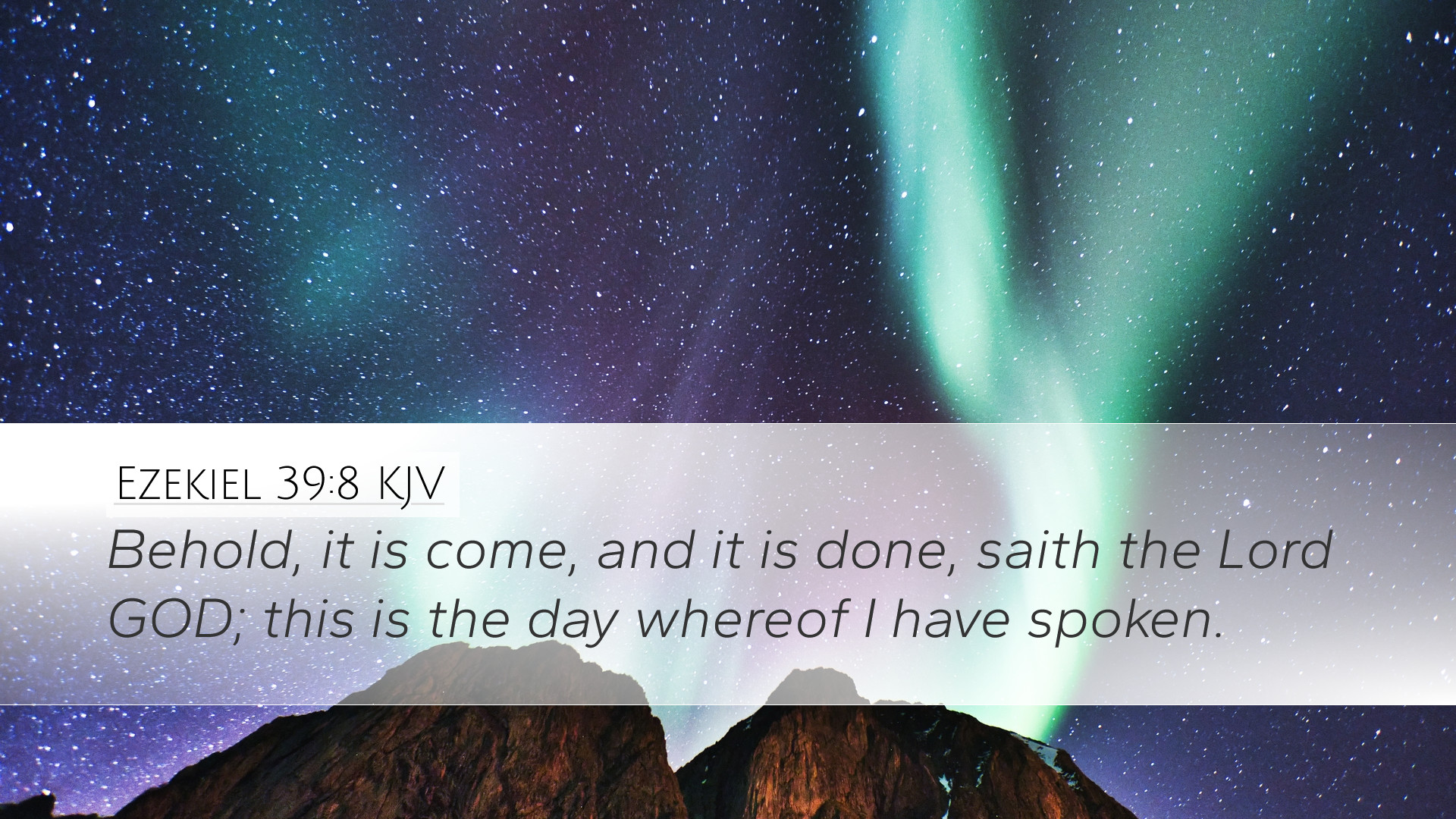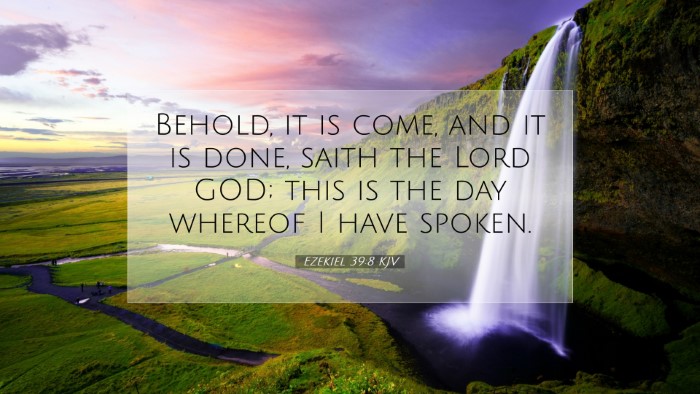Commentary on Ezekiel 39:8
Ezekiel 39:8 states: "Behold, it is come, and it is done, saith the Lord God; this is the day whereof I have spoken." This verse is a climactic declaration that signifies the fulfillment of God's promises regarding the judgment of Gog and the restoration of Israel.
Introduction
In Ezekiel 39, the prophet encapsulates the culmination of God's prophetic declarations aimed at both judgment and hope for His people. This particular verse serves as a proclamation of certainty concerning the prophetic word. It is essential for pastors, theologians, and scholars to delve into the richness of this text, drawing from various public domain commentaries to grasp its implications fully.
The Certainty of Fulfillment
Matthew Henry emphasizes the importance of recognizing God's sovereignty in bringing about His purposes. The phrase "Behold, it is come, and it is done" confirms that what has been foretold is now a reality. Henry insists that this affirmation from God gives believers confidence in His promises, as all prophecies are assured in their fulfillment.
- Henry notes the significance of the terms "it is come" and "it is done," indicating that God's plans are not merely aspirational but are actively realized in history.
- He also suggests that such declarations of fulfillment were crucial for the exiled Israelites, who needed assurance that their restoration was imminent.
The Day of Judgment and Restoration
Albert Barnes further elucidates that the phrase "this is the day whereof I have spoken" serves as a pivot for understanding Ezekiel's overarching narrative. Barnes interprets this day as a significant turning point in the history of Israel, marking divine intervention in a profound way.
- Barnes connects this proclamation with previous prophecies about Gog's defeat, emphasizing the assurance that God has not only decreed judgment but has actively set into motion the events leading to restoration.
- He highlights that this day is both a day of terror for the enemies of Israel and a day of hope for the people of God, drawing attention to the dual nature of God's actions.
Divine Assurance to God's People
Adam Clarke brings a pastoral perspective to this text, focusing on its implications for the faith community. Clarke notes that the certainty expressed in the verse should encourage God's people that they are not left in despair but under divine promise.
- Clarke emphasizes that the realization of God's promises provides a source of hope and strength amid trials and tribulations.
- He points out that this assurance should galvanize believers to trust in God's timing, as He works out His purposes in each generation.
Theological Implications
When synthesizing insights from these commentators, several theological themes emerge from Ezekiel 39:8:
- The Sovereignty of God: The verse underscores God’s unwavering control over human history, assuring that His plans will be executed as He wills.
- Judgment and Mercy: This passage illustrates the balance of God's justice in judging evil while simultaneously offering hope and restoration to His people.
- The Importance of Prophecy: It reminds believers of the importance of prophecy as a means of understanding God’s will and the timeline of His actions in the world.
Application for Contemporary Readers
For modern readers, particularly pastors and teachers, Ezekiel 39:8 holds several applications:
- Encouragement to maintain faith in God's promises, even when circumstances seem contrary to what has been prophesied.
- Understanding the significance of prophetic literature in strengthening the church’s hope in God’s ultimate plan for redemption and restoration.
- A call to anticipate and prepare for the fulfillment of God’s word, exhorting congregations to live in light of these truths.
Conclusion
In conclusion, Ezekiel 39:8 serves as a potent reminder of the faithfulness of God in fulfilling His promises to Israel and by extension to all who trust in Him. By drawing from the rich insights of commentators like Matthew Henry, Albert Barnes, and Adam Clarke, the contemporary church can better understand its role in proclaiming God’s truth and living in hope amidst a tumultuous world.


